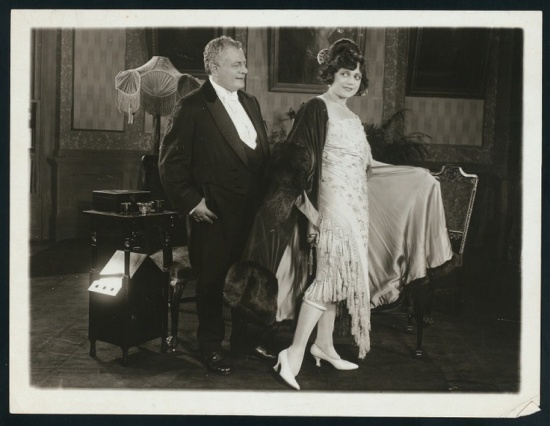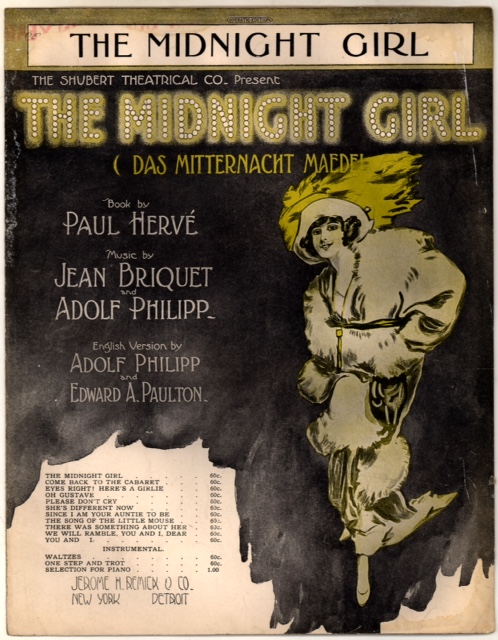
Adolph Philipp and Marie Pagano in The Midnight Girl (1919)
We’re standing on the verge of the Roaring Twenties all over again. It’s often instructive (and fun!) to look back at how cinema has advanced in a century and 1919 was a particularly strong year for the movies. As the Cento anni fa strand at Il Cinema Ritrovato proved this year, many films we now acknowledge as silent classics were released just before the feted 1920s began. In 1919, the war in Europe had ended, Hollywood was growing strong, the feature film was rapidly becoming a fixture, and things were about to get very interesting in Germany. At the 20th British Silent Film Festival, we’re commemorating the anniversary of the Weimar Republic by looking at the fascinating German cinema of this period and its global influence too.
We’ll be screening several diverse films from 1919 at this year’s festival in Leicester: from Mauritz Stiller’s captivating Swedish drama Song of the Scarlet Flower starring Lars Hanson, to Maurice Elvey’s WWI movie Comradeship and Ernst Lubitsch’s frenetic comedy The Oyster Princess. One of the 1919 films on the slate is likely to be unfamiliar to most of us – The Midnight Girl, a charming two-reel comedy, which reveals the extent of the influence not just German culture but the New York stage had on mid-period silent cinema. Not only that, but our screening of the film will be very special.
Adolph Philipp, the writer and director of The Midnight Girl, was born in Germany but ran away as a teenager to join an acting troupe. In the early 20th century he opened a theatre in New York, where he staged many of his own musicals for the substantial German-speaking audience in the city, as well as selling his sheet music.

Adolph Philipp’s sheet music for The Midnight Girl
“Some of his successes transferred to English-language stage versions, as was the case with The Midnight Girl (originally Das Mitternacht Maedel) in 1914,” explains programmer and film historian Michelle Faacey who will introduce our screening. “By 1919 Philipp was desirous of seeing his musicals on the silver screen, and he therefore announced six of his creations would go in to production, made by his own film company.
“Only half of the intended films were realised and it would appear that the sole survivor of Adolph Philipp’s three silent film musical comedies is this one, The Midnight Girl.” Collector Bob Geoghegan has a nitrate print of the film, which has been transferred to a splendid 2K digital version, which we will screen at the 2019 festival.
Philipp’s co-star in the film is the glamorous and charming Marie Pagano, another unfamiliar name to most. “Pagano has only a few known film credits to her name, but my research uncovered that she was a key player in an essential part of the movie-making business for a few short years before we lose sight of her whereabouts,” says Facey. “But I will tell more of what I know of her story in Leicester, come September…
“Certainly, Marie very much desired to emerge from the shadows and become a leading lady and as the Midnight Girl she found a chance to shine. I’m sure you too will delight in her appearance in this most enjoyable silent musical comedy,” adds Facey.
At the British Silent Film Festival, we are always keen to emphasise the importance of musical accompaniment to silent film, and this screening contains an extra treat. “The chorus of the title song is displayed prominently on screen at the start of the film,” says Facey, who is also a very talented vocalist, “and I will be singing this short piece live on the day with piano accompaniment – in happy celebration of the film’s centenary year.”
With thanks to Michelle Facey.
Pingback: 20th British Silent Film Festival – at-a-glance timetable « British Silent Film Festival